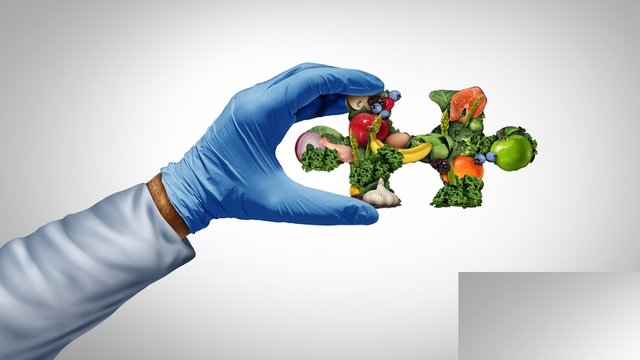
Nutrigenomics vs nutrigenetics: What are the differences?
May 20, 2024

In the realm of personalised nutrition, two terms frequently pop up: nutrigenomics and nutrigenetics. While they may sound similar, they refer to distinct fields that play crucial roles in understanding how our genes interact with the foods we consume. Both offer valuable insights into tailoring diets to individual genetic makeup, particularly in elite sport where the tiny margins can make a huge difference.
In this blog post, we'll delve into what nutrigenomics and nutrigenetics are, their key differences, and how they complement each other to pave the way for optimised nutrition. And if you are considering a career in sports training and nutrition to help athletes reach their goals, you should consider the master in Sports Nutrition Online or the master in Sport Training and Nutrition at Escuela Universitaria Real Madrid.
What is nutrigenomics?
Nutrigenomics examines how nutrients in food interact with our genes, affecting gene expression and, subsequently, our health. It explores how dietary components influence the body's molecular mechanisms, such as gene transcription, protein expression, and metabolite production. Through advanced technologies like microarrays and sequencing, researchers can analyze how specific nutrients impact gene activity.
What is nutrigenetics?
Nutrigenetics, on the other hand, focuses on how genetic variations among individuals influence their responses to nutrients. It looks at how variations in genes affect the body's absorption, metabolism, and utilization of nutrients. By studying genetic variations related to nutrient processing, researchers can predict individual responses to different dietary components, enabling tailored dietary recommendations.
Key differences between nutrigenomics and nutrigenetics
The main difference between nutrigenomics and nutrigenetics lies in their focus:
- Nutrigenomics primarily examines how nutrients affect gene expression and molecular mechanisms.
- Nutrigenetics focuses on how genetic variations influence individual responses to nutrients.
While nutrigenomics looks at the broader picture of how diet impacts gene expression, nutrigenetics zooms in on individual genetic variations and their effects on nutrient metabolism.
How do they complement each other?
Nutrigenomics and nutrigenetics are not mutually exclusive; in fact, they complement each other in various ways:
- Personalised Recommendations: Nutrigenetics provides insights into how an individual's genetic makeup influences their response to specific nutrients. For instance, someone with a genetic predisposition to lactose intolerance may benefit from avoiding dairy or opting for lactose-free alternatives. Nutrigenomics, on the other hand, helps understand the molecular mechanisms behind these responses, providing a deeper understanding of how nutrients interact with genes.
- Precision Nutrition: By combining data from both fields, researchers, healthcare professionals and sports nutrition coaches can offer more precise dietary recommendations tailored to an individual's genetic profile and molecular pathways. This personalised approach maximizes the potential health benefits of nutrition while minimising adverse effects.
- Disease Prevention and Management: Understanding the interplay between genetics and nutrition is crucial in preventing and managing chronic diseases. Nutrigenomics can identify dietary patterns that may modulate gene expression to reduce the risk of diseases like obesity, diabetes, and cardiovascular disorders. Nutrigenetics helps identify individuals at higher risk due to genetic predispositions, allowing targeted interventions through personalised dietary plans.
- Research Advancements: Integrating nutrigenomics and nutrigenetics allows for comprehensive research on the intricate relationship between diet, genetics, and health outcomes. This interdisciplinary approach fuels discoveries in areas such as personalized medicine, functional foods, and dietary interventions for disease prevention and management.
In conclusion, while nutrigenomics and nutrigenetics approach personalised nutrition from different angles, they are interconnected disciplines that offer valuable insights into optimizing health through diet.
Nutrigenomics explores how nutrients interact with genes at a molecular level, while nutrigenetics focuses on individual genetic variations and their effects on nutrient metabolism. Together, they provide a comprehensive understanding of how diet influences gene expression and individual responses to nutrients.
By integrating data from both fields, researchers and healthcare professionals can develop tailored dietary recommendations that maximize health benefits based on an individual's genetic makeup and molecular pathways.